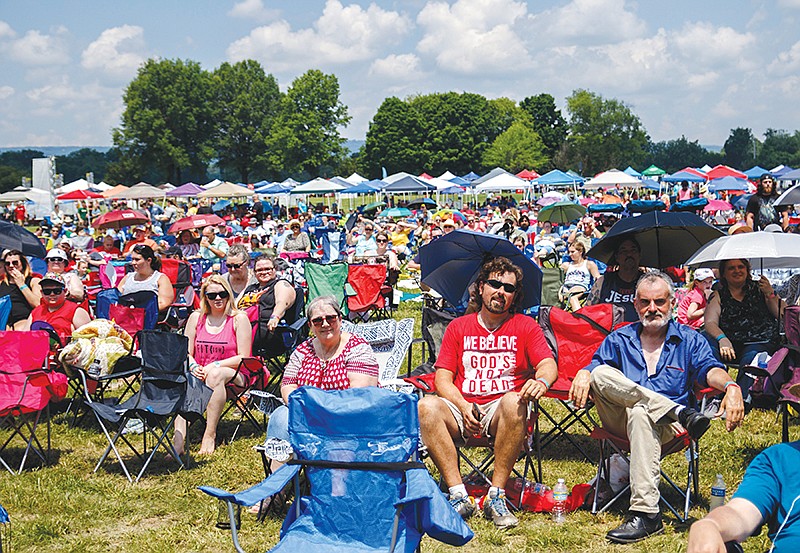It should be clear to most of us by now that the live music scene in our city and the country is essentially canceled for 2020 because of the coronavirus. Just about every big festival here and elsewhere has called off this year, with Jfest, Riverbend, Moon River and Bonnaroo being the biggest in our area to make that announcement in recent weeks.
I don't know about you, but the big mind shift for me has been to now look at those events in the rearview mirror, as if they had happened and we are now talking about next year. I think that's the correct way to see things.
Which means the next question on our minds should, or at least could, be what does the future look like going forward? It's a safe bet that it won't look like the past. Things like masks and social distancing are likely here to stay and shaking hands and hugs are probably things we'll nostalgically tell our grandkids about one day.
But what about live music?
I believe in the rubber-band or reset theory of things, meaning civilizations always rebound. Things get stretched to what seems like their limits all the time because of wars, civil unrest, changes in attitudes and natural disasters, and then they snap back. Maybe not into the same shape, but people always seem to go on.
For the music industry's big players - the huge festivals and massive tours - things look pretty bleak right now, just as they do for organized athletics with talks of how to have a pro or college football game with only a fraction of the stands filled with people. What does that look and feel like, and can you make money? Those sports organizations have huge contracts with TV networks that pay them to broadcast their events.
And let's be honest, that is why they are so adamant to get back in the swing of things; though sure, fans want their football, or NASCAR, or baseball or whatever.
Big concerts don't really have TV money. They have sponsorships, of course, but those don't equal the kind of money NBC and Fox are throwing at things like NASCAR, which gets over $8 billion a year. To put just how big a number 8 billion is into perspective, 1 million seconds equals about 11 days. One billion seconds equals 31.5 years.
I think we will see music come back on a smaller scale, likely starting at the local level. We are already seeing that with Songbirds presenting local and some regional acts playing to much smaller crowds at the Choo Choo each weekend.
It seems to be working. The musicians I know have used the time "off" to hone their craft, write new material, record the songs they've been meaning to record for years and, more importantly, get their business act together. They found that in order to apply for government loans to get them through this, they needed to have their taxes and schedules and paperwork in general organized.
It was a wake-up call that the ones who are serious about being a professional musician heeded. They likely will come out of this stronger for it. They've also had to find alternative ways to not only present their work, but make money.
The same is true for club and venue owners. The time off has given them time to really zero in on what works and what doesn't, and to do the remodels and fixes to their places that they didn't have time for in the past.
What will be interesting to watch is the battle that ensues with the artists, the venues, the promoters and the big boys like Live Nation and C3 over who pays what, who gets paid for what and who is liable for what - essentially, who really holds the upper hand.
The strong will likely survive. But who that will be, nobody knows yet.
